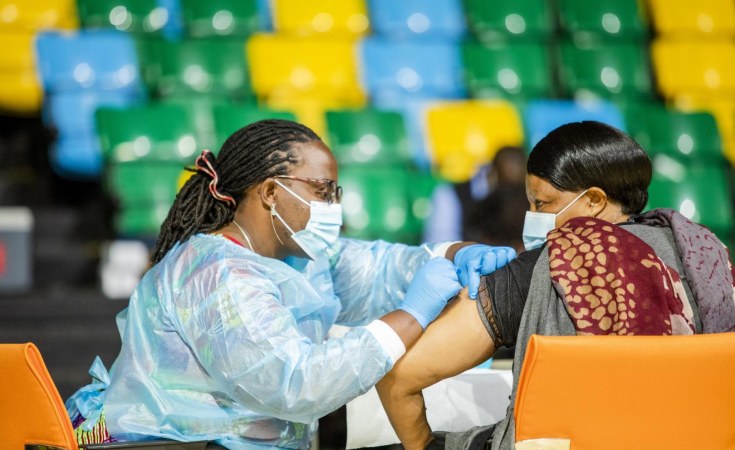While Kenya and South Africa begin to ease to Covid-19 restrictions, including mask wearing in open spaces, Nigeria is still in national disaster status with no announcement of when restrictions might be lifted.
These differing approaches reflect Africa’s general uncertainty and unpredictability on how Covid-19 will evolve going forward.
Despite the challenges of the past two years, the world now has a better appreciation of genomics, the science behind the genetic makeup of viruses and how our understanding of their genetic variation helps us plan for what happens next. The understanding of what type of viruses are circulating, how transmissible they are and how they may respond to vaccines and other therapies is crucial.
We must take these lessons from Covid and apply them to Africa’s other endemic diseases that could become epidemics. We must leverage the investments made for Covid to address these challenges - some of which were exacerbated by the pandemic. Consider then the lessons learned during the pandemic.
Firstly, we now know that preparedness is key. Making sure that our health systems are well resourced to cope with overwhelming numbers of patients is imperative as we experienced the devastating health system incapacity globally that saw thousands of patients left without medical care or supplies. This cannot happen again; Africa needs to be better prepared as stipulated in WHO’s pandemic preparedness guidelines.
Secondly, the pandemic has shown us the value of collaboration and partnerships. We saw an unprecedented coming together of all stakeholders from different sectors in solidarity to do what they could to manage this global emergency.
Resources were mobilised on a global scale and it seemed that no opportunity was left unexplored to solve the issue at hand, this momentum should not be lost and should not be a once off. In Africa, we are still battling with other pathogens and neglected tropical diseases NTDs that could potentially lead to pandemics, partly as a result of the public health impacts of Covid-19, as described in the report on the impact of Covid-19 on other endemic diseases, as well as a general lack of investment in these areas pre-Covid-19.
The main public health consequences, according to a WHO report are an increased burden of NTDs, in terms of both mortality and morbidity; delays in achieving the public-health goals set for relevant NTDs, including elimination as a public health problem, elimination of transmission and eradication; and reduced collection and analysis of epidemiological data.
How then do we leverage this momentum built during Covid-19, for other diseases like HIV, TB, Malaria and Lassa Fever?
Partnerships like the Africa CDC’s Pathogen Genomics Initiative (PGI) supported by Illumina, Gates Foundation and Oxford Nanopore among others are examples of stakeholders collaborating to advance genomics in Africa. We need African governments to play their part by, for example, establishing national genomics policies and investing in the areas that will ensure equitable access to health technologies as we prepare for future pandemics.
Thirdly, we now value local investments into health technologies. Investing in local capacity to study viruses, for example in genomics and surveillance infrastructure, is important to act expeditiously in emergencies such as the one we saw during the height of the pandemic. Vaccine manufacturing capacity and pragmatic regulatory policies for accelerated access to life saving therapeutics is also a huge lesson.
When the African Ministers of Health met in August 2021 to focus on the Covid-19 pandemic, they praised the partnerships and collaboration of all stakeholders. Now, ahead of the next meeting in 2022, we implore them to act as agents of change and work with their respective governments to ensure that adequate attention and resources are placed on the need for investments in life saving health technologies.
Using cutting edge science to remain a step ahead of the viruses that we know of and those that will emerge in future, using the power of genomics to improve human health is the way forward.
When we invest in technologies such as genomics and pathogen surveillance, not only can we plan for the appropriate therapies, but we can also predict where these cluster outbreaks might be and how they might evolve and act expeditiously to prepare our health workforce and avail the necessary resources to manage the spread of diseases to avoid another state of disaster.
Covid-19 has shown the value in African governments investing in innovations such as these so that they do not remain a privilege for only those in high income countries.
Yes, these technologies are expensive. But we now know that we cannot afford not to invest in life-saving health technologies such as NGS.
Costs should not be the reason Africa is left behind again! As Africa plots it way forward, we know that investment in appropriate technology is key.
Yolanda Moyo is the Head of Government Affairs at Illumina and a member of the South African Health Technologies Advocacy Coalition (SAHTAC). She has over 18 years’ experience in private and public sectors, academia, product development, clinical trials, managing regulatory compliance of health research in Europe and Africa. Follow her on Twitter @ybmoyo1


